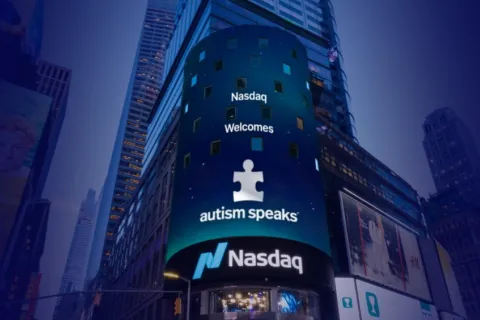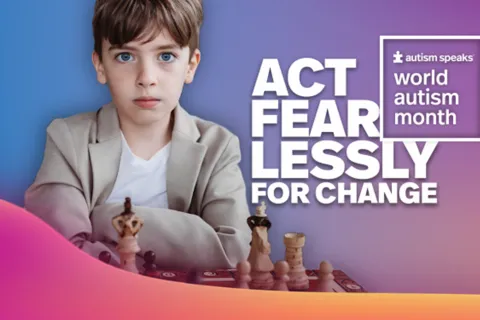Autism Speaks CEO testifies before Congress on pathways for employment of individuals with autism and other disabilities
February 1, 2024On January 30, the House Small Business Committee’s Subcommittee on Innovation, Entrepreneurship, and Workforce Development held a hearing titled “Pathways to Success: Supporting Entrepreneurs and Employees with Disabilities.” The hearing dove into the challenges that exist for potential employees with disabilities and solutions to ensure their participation in the marketplace.
Chairman Marc Molinaro and Ranking Member McGarvey invited three individuals to testify before the committee, sharing their personal experiences and providing expertise on how entrepreneurs and employees with disabilities are strong contributors to our economy.
- Keith Wargo, President and CEO of Autism Speaks, spoke on the work at Autism Speaks to develop and scale innovative solutions that help ensure that more autistic people can secure meaningful employment. He also shared his personal perspective as a parent of an adult son with autism and owner of Monarch Towel Company, which has made it a mission to employ autistic people.
- Iva Walsh, mother to a daughter with Down Syndrome and the founder and owner of Maeve’s Place which employs and supports those with intellectual disabilities.
- Cody Clark, an autistic self-advocate and founder and owner of Cody Clark Magic.
Together, they offered the committee the insights and perspectives shared below on the current state and future opportunities of employment of individuals with diverse abilities.
State of Employment for Individuals with Autism and Other Disabilities
|
While we have seen strides in autism and disability awareness and acceptance, we still face significant challenges in inclusive employment. In 2022, only 21% of people with disabilities, including autism, were employed, despite many individuals with disabilities having the skills and desire to work. This underscores a persistent gap in the job market. Further, over half of young adults with autism face unemployment or are not enrolled in higher education, in the two years after high school, which is a higher rate compared to their peers with other disabilities. |
Benefits of Hiring People with Disabilities
Inclusive employment for the neurodiverse and other individuals with disabilities is a sound economic investment for businesses of any size and can be a key driver of economic growth across our nation. A recent study showed that companies that actively seek to employ people with disabilities outperform businesses that do not. Their revenues, net income and profit margins were all higher. At the national level, this analysis revealed that the U.S. GDP could get a boost of up to $25 billion if more people with disabilities joined the labor force.
Employees with disabilities offer a unique perspective and skillset that makes them attractive employees. Research shows that people with disabilities are highly motivated to work, can create a more positive work environment, are more loyal, and less frequently absent than other employees.
Additional advantages for individual workplaces and our society when employers embrace inclusivity include:
- increased creativity and innovation in the workplace
- diminished stereotypes, and
- reduced social stigma and discrimination.
Case Example
Greif, formerly Lee Container, implemented WIN training and operational changes, such as allowing for part-time employment, at their Iowa facility. This led to the hiring of multiple non-traditional candidates and has helped their autistic employees thrive. They have also witnessed increased inclusivity extend to hiring veterans and seniors, enhanced productivity, and raised morale across the facility.
The Path Forward
While entrepreneurs and employees with disabilities may face additional barriers to entry when considering opening a business or applying for a job, it is crucial we continue to promote the opportunities available to them and ensure this community has access to the resources needed to thrive. In the post-pandemic workforce, unique employment opportunities have arisen for people with disabilities. We have seen a significant rise in the number of individuals with disabilities joining the workforce, in part due to labor shortages, remote work opportunities, and tax incentives.
However, employment disparity statistics highlight the need for targeted employment support and opportunities in this community.
Three actions that move the needle toward a more inclusive workforce are:
- Rethinking hiring practices – Employers can consider alternative processes to interviews, which can often be a barrier for many talented autistic job seekers. Alternatives may be emphasizing a practical skills application over a series of traditional Q&A interviews. Interviews themselves can benefit from enhancements and accommodations offered by technology.
- Workforce development training – This training should include courses to foster acceptance of neurodiverse individuals in the workplace. The Workplace Inclusion Now program (WIN) is an evidence-based workforce development program that specifically promotes diversity in hiring and helping create an inclusive workplace culture in which not just autistic adults, but all employees, can thrive.
- Create a more accessible workplace – This can include making accommodations for sensory needs such as addressing noise issues or lighting sensitivities. It may also mean making minor changes to create more adaptable workplaces through flexible schedules or allowing job coaches.
|
In Q&A with the subcommittee members, the importance of early planning was also raised. In a student’s limited time in K through 12 education, there are opportunities to prepare youth for employment. Foremost, early transition planning should be part of every students’ IEP so they have ample time to discuss and map out a path out of school and into adulthood. Vocational rehabilitation programs also offer an individual skills development. Unfortunately, these are often underfunded and under-resourced. |
Policymakers and employers can listen to autistic individuals, look to successful initiatives like Workforce Inclusion Now for best practices, learn from companies already benefiting from inclusive workforce practices, and support organizations in scaling solutions.
Watch the recording of the subcommittee meeting.
Read the full written testimony of Keith Wargo, Autism Speaks President & CEO
Resources referenced during the hearing to help potential employees and employers.
- Partnership on Inclusive Apprenticeship (PIA) and Partnership on Employment and Accessible Technology (PEAT) help guide self-employed entrepreneurs.
- Workforce Inclusion Now is an Autism Speaks workforce development program for employers, job seekers and community members committed to promoting diversity in hiring and creating an inclusive workplace culture in which not just autistic adults, but all employees can thrive.
- U.S. Small Business Administration website









